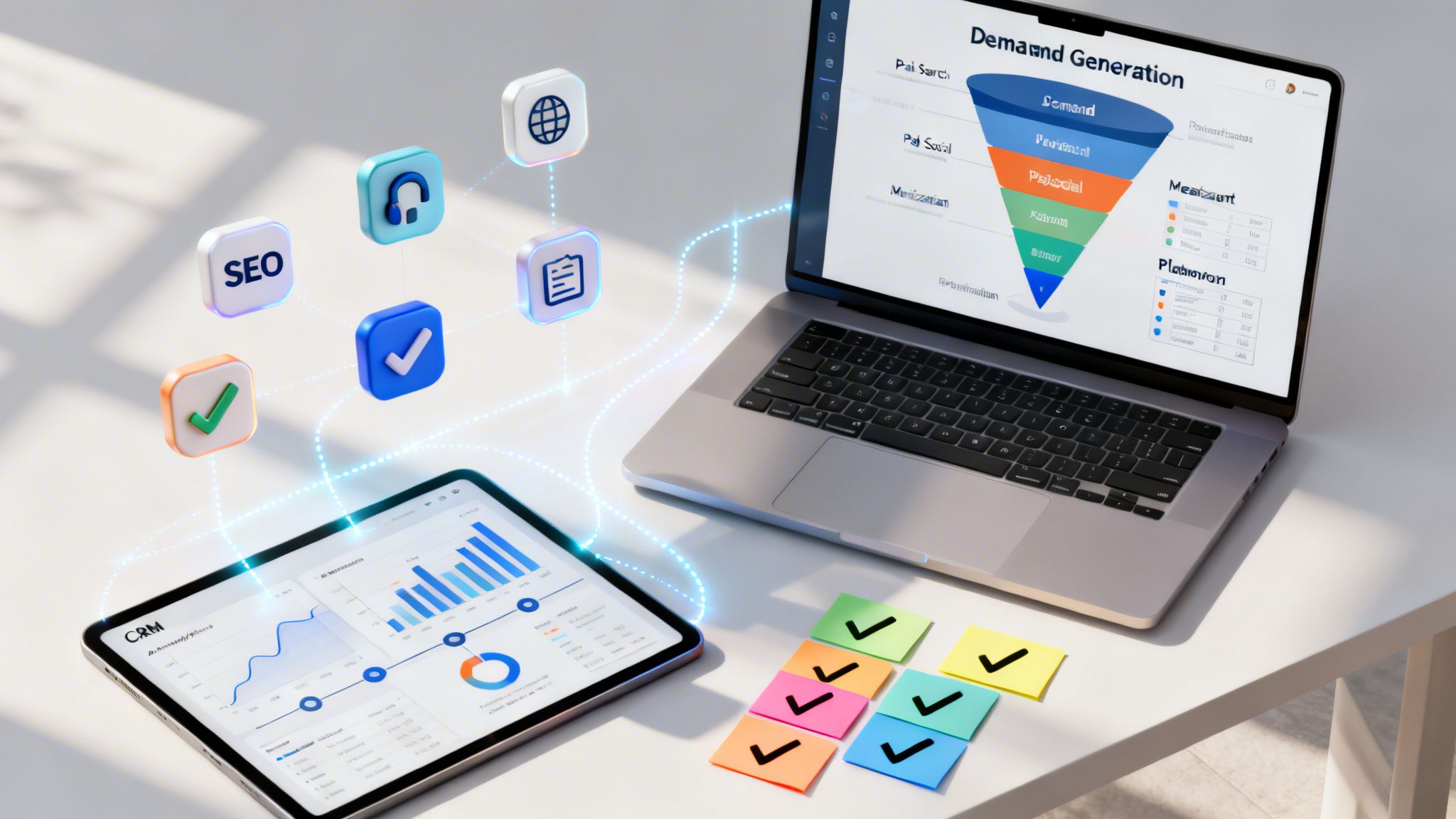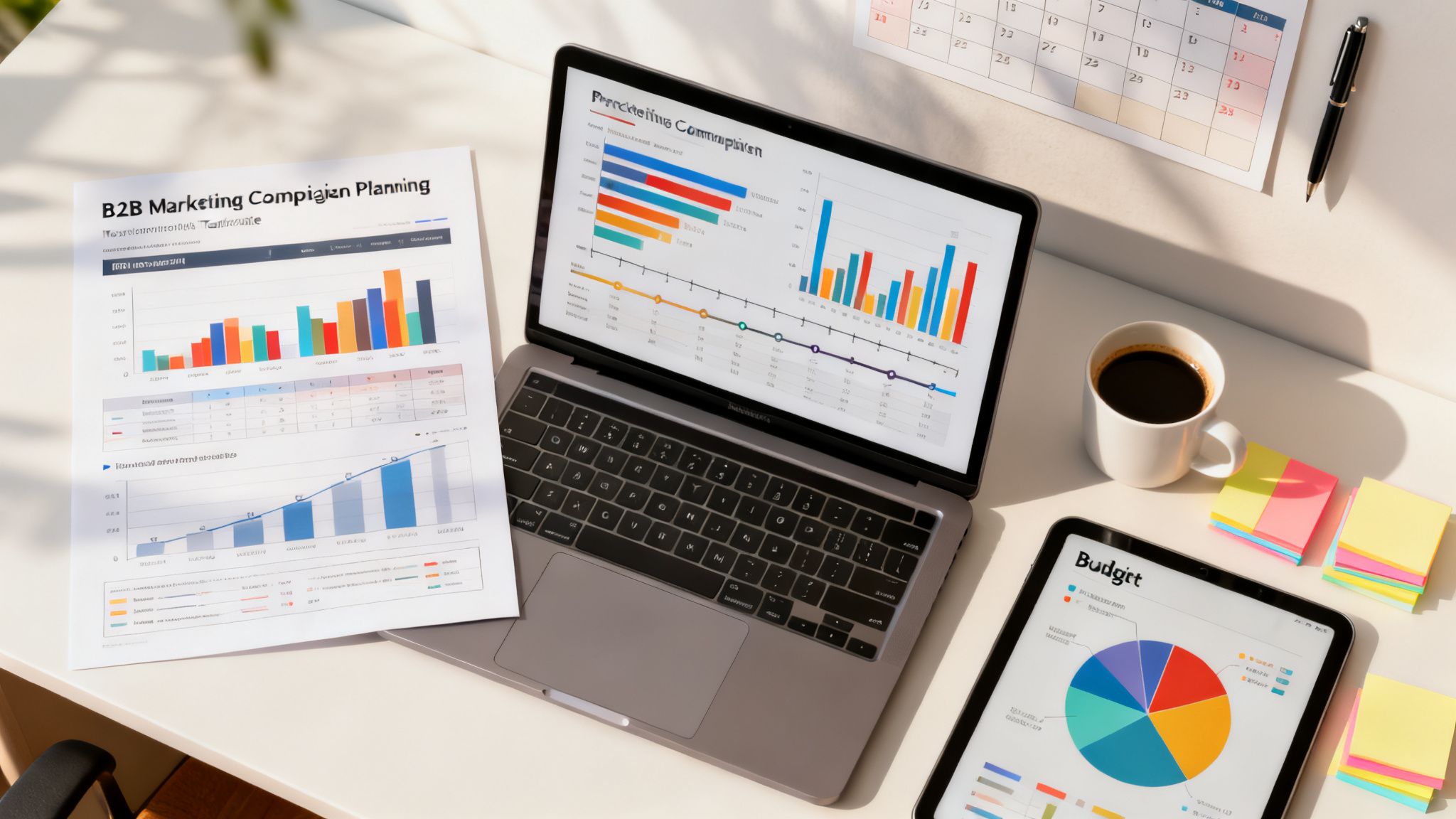In the current nonprofit environment, non-governmental organizations (NGOs) face the pressing challenge of fostering meaningful connections with their donors. As the philanthropic sector evolves, the need for innovative tools to enhance donor engagement has become paramount. Salesforce, a leading customer relationship management (CRM) platform, offers a suite of solutions specifically tailored to empower NGOs to build and sustain these critical relationships. With its robust functionalities, Salesforce allows organizations to take control, streamline communication, personalize donor interactions, and leverage data-driven insights for informed decision-making. By utilizing the platform's versatile features, NGOs can enhance their engagement strategies and maximize donor retention and satisfaction. In this article, we will explore five key ways Salesforce enables NGOs to elevate their donor engagement efforts, paving the way for sustainable funding and long-term partnerships. Whether you are a small grassroots organization or a large international NGO, understanding how to effectively utilize Salesforce can significantly impact your outreach and fundraising success. Join us as we delve into these transformative capabilities and discover how they can help NGOs navigate the complexities of donor relations in an increasingly dynamic environment.
1. Personalization: Tailor communications for donor relationships using insights from donor profiles and segments.
Donors can foster deeper relationships with their supporters by leveraging insights from donor profiles and segments. Tailored communications not only enhance engagement but also align with individual donors' unique expectations and preferences. For instance, employing data from the Nonprofit Cloud allows organizations to customize email campaigns, ensuring that messaging resonates with specific donor segments—whether highlighting volunteer opportunities for active participants or showcasing major gifts for those inclined towards significant contributions. This level of personalization makes interactions more meaningful, ultimately driving donor retention and encouraging long-term loyalty.
Salesforce's analytics tools can provide invaluable insights into donor behavior, helping nonprofits identify trends and optimize their outreach efforts. By understanding the donor journey and the nuances of each donor's history, organizations can craft relevant and timely fundraising campaigns. This data-driven approach empowers nonprofit teams to make informed decisions that enhance fundraising performance, strengthen relationships with donors, and increase overall donor satisfaction.
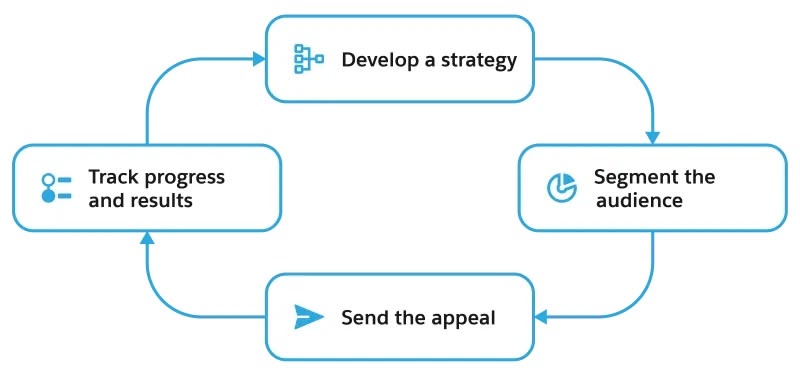
2. Donor Research: Analyze donor behavior to inform engagement strategies and improve fundraising performance.
Conducting thorough donor research is essential for nonprofits aiming to enhance their engagement strategies and improve overall fundraising performance. By analyzing donor interactions, preferences, and motivations, organizations can better understand their supporters, leading to more informed decisions regarding outreach and engagement efforts. For instance, surveys and interviews can reveal insights into what drives individual donors to contribute, while social media analytics can highlight the content they engage with most. This information enables nonprofits to tailor their messaging and initiatives, ensuring that their fundraising strategies resonate with major donors and individual contributors.
Additionally, effective donor research allows organizations to identify potential vital donors, creating relationship-building opportunities beyond transactional interactions. By mapping out the donor cycle and understanding the various touchpoints in the donor journey, nonprofits can proactively engage supporters through personalized communication and well-timed outreach. Leveraging third-party tools alongside Salesforce's powerful Customer Relationship Management capabilities further amplifies these insights, enabling a comprehensive approach to donor management that enhances engagement and drives sustainable fundraising outcomes. This strategic focus on donor behavior cultivates stronger relationships, fostering loyalty and increasing the likelihood of long-term support.
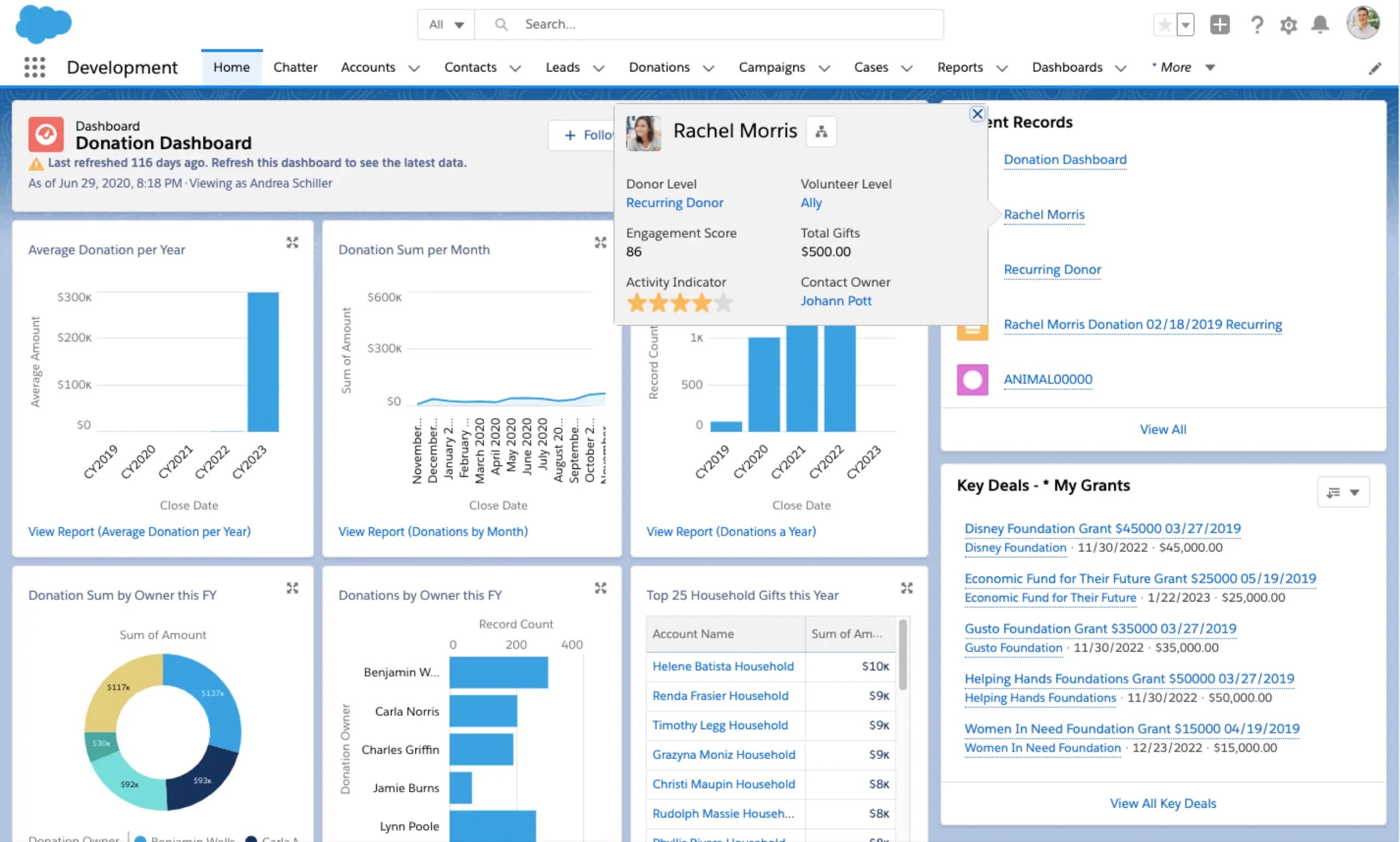
3. Building Trust: Enhance transparency in donor interactions to strengthen relationships and improve donor retention.
Maintaining transparency in donor interactions is critical for fostering trust and enhancing relationships between nonprofit organizations and their supporters. Through clear communication regarding organizational activities and the allocation of funds, nonprofits can effectively demonstrate their commitment to accountability. Regular updates on spending, program outcomes, and donor contributions' impact reassure current supporters and attract potential donors by showcasing a culture of openness. Utilizing tools within the Salesforce Nonprofit Cloud, organizations can streamline reporting processes, ensuring that information is accessible and easily digestible for various donor segments, ultimately leading to improved donor retention rates.
Transparency helps set realistic expectations for donors, allowing them to feel more engaged in the nonprofit's mission and goals. Organizations can cultivate stronger relationships and encourage ongoing involvement beyond monetary donations by providing insights into how their contributions are utilized. This approach enhances donor loyalty and positions the organization as a trustworthy steward of resources, reinforcing sustainable fundraising efforts. As nonprofits leverage Customer Relationship Management (CRM) systems like Salesforce, they can maintain robust donor records, facilitate meaningful outreach, and foster a collaborative environment that elevates the donor journey from initial contact to long-term partnership.
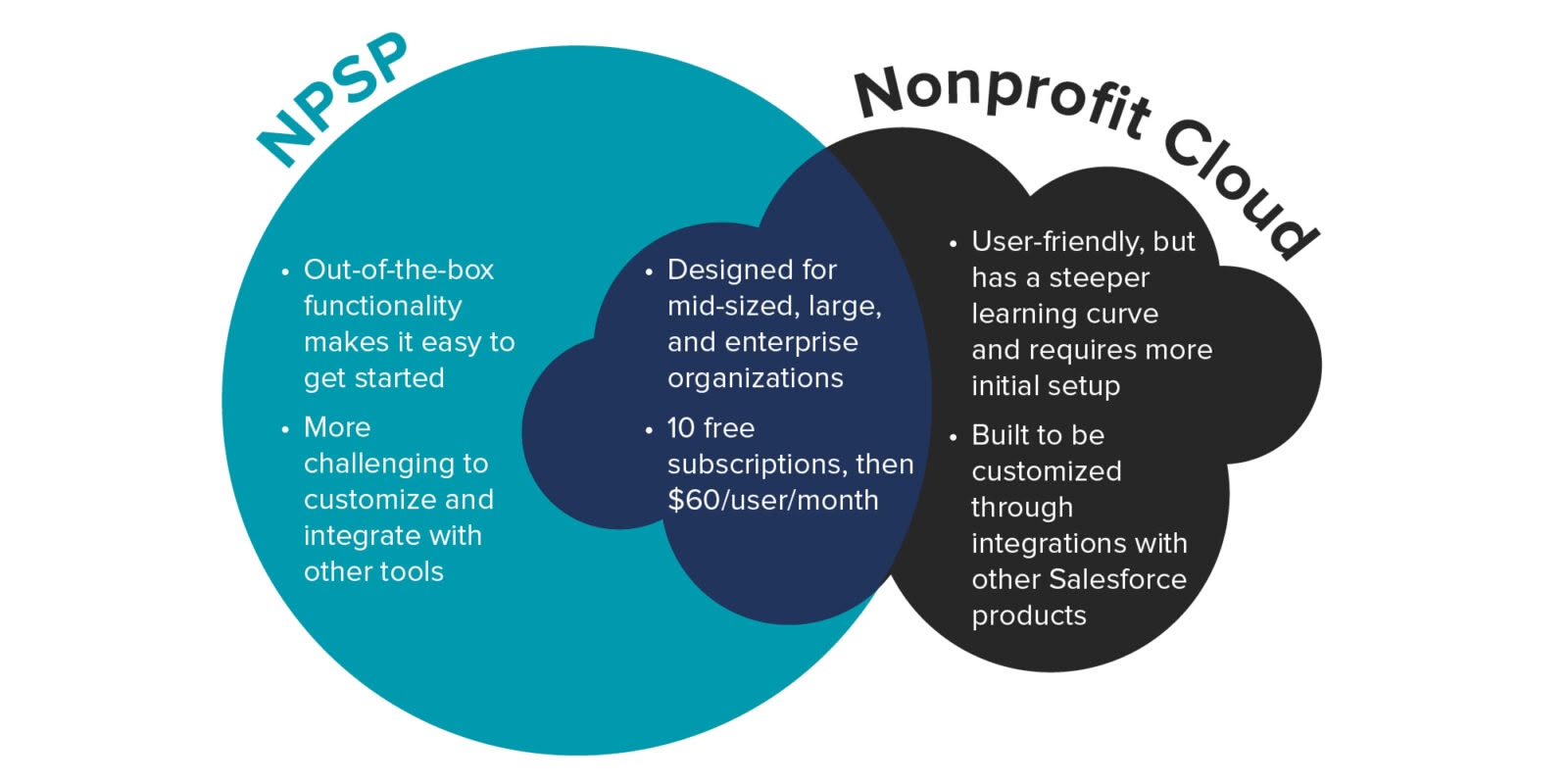
4. Beyond Financial Asks: Foster connections with significant donors through meaningful outreach and valuable engagement opportunities.
Engaging major donors, who are individuals or entities that contribute significant amounts to the organization, requires a shift from traditional financial asks to cultivating deeper connections through meaningful outreach and valuable engagement opportunities. By leveraging the capabilities of the Salesforce Nonprofit Cloud, organizations can create tailored strategies that enhance donor interactions, making them feel appreciated and involved in the organization's mission. This approach includes organizing exclusive events, providing behind-the-scenes insights, and regularly sharing updates that resonate with donor interests, all of which help to foster stronger relationships.
Creating a donor journey that emphasizes non-monetary interactions can significantly enhance the overall experience for significant donors. This could involve personalized communications such as invitations to community events, updates on relevant industry trends, or even sending thoughtful holiday greetings. Such initiatives nurture trust and reinforce the donor's connection to the organization, leading to sustained engagement and potentially more significant major gifts in the future. By focusing on these relationship-building strategies, nonprofits can enhance donor retention and cultivate a loyal base of substantial supporters.
5. Recognition: Implement strategies for acknowledging contributions to improve donor retention and engagement rates.
Recognition is a pivotal element in nurturing donor relationships and enhancing retention rates. Nonprofit organizations can implement strategies that emphasize the importance of acknowledging contributions, ensuring that donors feel valued and appreciated for their support. Utilizing tools within the Salesforce Nonprofit Cloud, organizations can streamline their donor management processes to track contributions effectively, allowing for timely and personalized recognition. For instance, sending immediate thank-you messages, featuring donors in social media spotlights, or recognizing them in newsletters can create a strong sense of belonging and commitment to the organization's mission, fostering a deeper connection and increased engagement.
Establishing a structured recognition program can significantly boost engagement among various donor segments, from individual givers to major donors. Organizations can tailor their acknowledgment efforts by creating donor profiles that highlight their contributions and preferences. This approach enhances donor interactions and fosters a culture of appreciation that encourages ongoing involvement. Ultimately, these recognition strategies contribute to a sustainable fundraising model, helping nonprofits to build and maintain strong relationships with their supporters while improving overall donor retention rates.
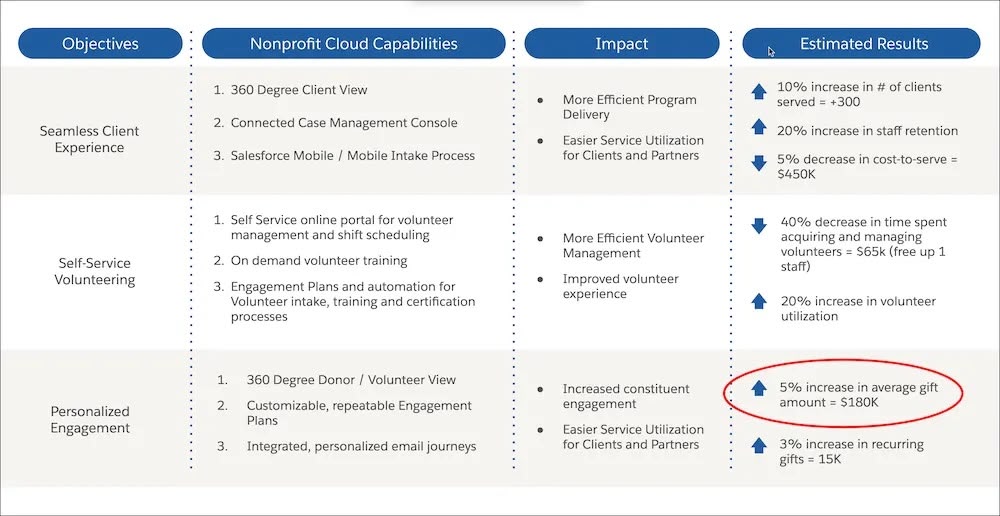
6. Membership Programs: Develop exclusive offerings to enhance relationships with major donors and increase engagement.
Membership programs serve as a powerful tool for nonprofit organizations seeking to deepen their relationships with major donors and enhance overall engagement. By offering exclusive benefits such as behind-the-scenes access to programs, personalized fundraising campaign updates, and special event invitations, organizations can create a unique experience that fosters loyalty and commitment among their key supporters. Utilizing the capabilities of Salesforce Nonprofit Cloud, organizations can effectively manage donor profiles and track engagement levels, tailoring membership offerings to align with their major donors' specific interests and preferences.
These programs can facilitate a more meaningful donor journey, transforming transactional interactions into lasting partnerships. By integrating elements of volunteer management and program outcomes into membership offerings, nonprofits can further engage donors in the impact of their contributions, reinforcing their role in the organization's mission. This approach enhances donor retention rates and encourages major gifts, ultimately contributing to sustainable fundraising efforts. Through thoughtful implementation of membership programs, organizations can build stronger relationships with donors, ensuring ongoing support and advocacy for their cause.
7. Volunteer Management: Utilize tools for tracking volunteer activity to strengthen ties with nonprofit organizations and donors.
Effective volunteer management is essential for nonprofits to cultivate stronger relationships with volunteers and donors. Organizations can monitor volunteer activity by utilizing advanced tracking tools, including hours contributed and the specific programs or campaigns involved. This valuable data not only enhances reporting capabilities but also enables nonprofits to recognize and appreciate the contributions of their volunteers, ultimately fostering a more profound sense of community and commitment. When organizations demonstrate the impact of volunteer efforts through tailored communications or recognition events, they create an opportunity to engage donors interested in supporting these initiatives or who have a personal connection to the volunteers involved.
Tracking volunteer activity provides insights to strengthen donor relationships and retention rates. By analyzing trends in volunteer engagement alongside donor interactions, nonprofits can identify critical segments of supporters passionate about specific causes or programs. This information allows for more targeted outreach, enabling organizations to cultivate personalized donor experiences that resonate with their interests. In turn, such strategic alignment can lead to increased donor support through repeat contributions or significant gifts, as donors feel more connected to the mission and outcomes they are helping to drive through their involvement.
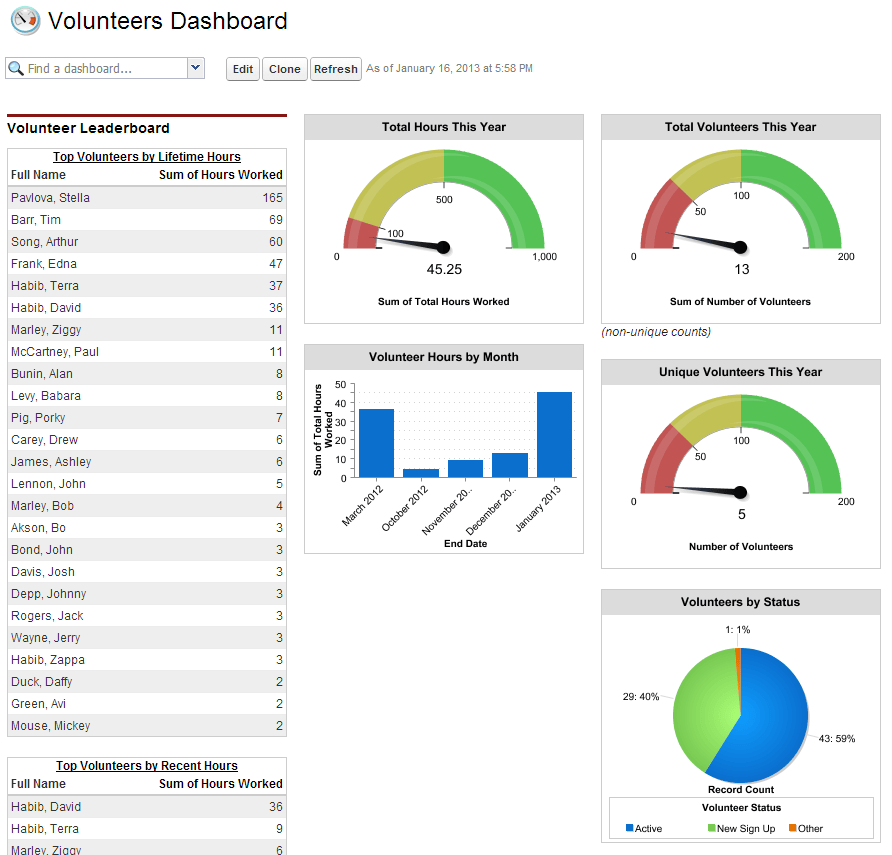
8. Reporting Tools: Leverage analytics tools to gain valuable insights into donor behavior and optimize fundraising strategies.
Leveraging reporting tools and analytics is crucial for nonprofit organizations aiming to enhance their fundraising strategies and optimize donor relationships. By utilizing the Salesforce Nonprofit Cloud, organizations can gain invaluable insights into donor behavior, allowing for a more nuanced understanding of the donor journey. These analytics tools enable nonprofits to segment donor records based on various factors, such as engagement levels and donation history, facilitating targeted communication and personalized outreach strategies. As a result, organizations can craft messaging that resonates with individual donors, addressing their unique expectations and preferences while maximizing the effectiveness of fundraising campaigns.
In addition to improving communication, these insights allow nonprofits to analyze fundraising performance in real time, helping teams make informed decisions that drive donor retention and engagement. Organizations can tailor their strategies to nurture relationships with major donors and potential supporters by identifying key donor segments and understanding the motivations behind their giving patterns. The integration of powerful reporting tools within the Marketing Cloud further enhances the ability to track donor interactions and engagement trends, ensuring that fundraising efforts are strategic and sustainable over time. This data-driven approach fosters trust with donors and empowers nonprofit teams to adapt to fundraising trends and enhance their overall impact.
In conclusion, Salesforce offers a robust framework for enhancing donor engagement for NGOs, fostering deeper connections, and promoting long-term support. Organizations can create a more meaningful and trust-based relationship with their supporters by leveraging personalization, conducting thorough donor research, and prioritizing transparency. Furthermore, moving beyond mere financial asks and actively recognizing donor contributions can cultivate a sense of belonging and appreciation. Finally, implementing membership programs can add significant value, ensuring donors feel connected and engaged. As NGOs continue to adapt to a rapidly changing landscape, integrating these strategies through Salesforce will enhance their donor engagement efforts and empower them to fulfill their missions more effectively.
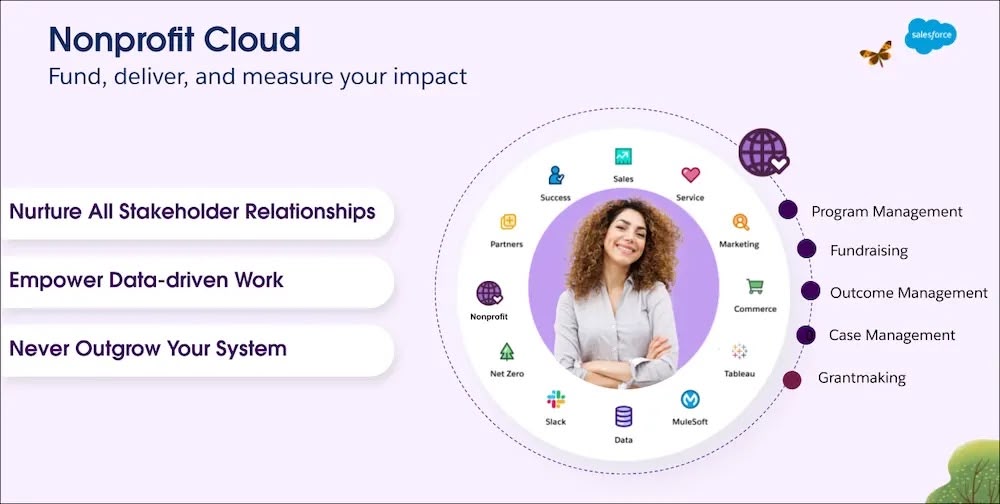
FAQ
Here are five questions related to the topic of how Salesforce enhances NGO donor engagement through the outlined strategies:
Salesforce enhances NGO donor engagement by providing a centralized database for donor information, enabling personalized communication. Its robust analytics tools help nonprofits track engagement and measure campaign effectiveness. Automation features streamline donation processes and follow-ups, improving donor experience. The platform facilitates targeted outreach through segmentation, allowing NGOs to tailor their messaging. Additionally, Salesforce integrates with various payment systems, simplifying donation collection and enhancing transparency, which builds trust with donors. These strategies empower NGOs to foster stronger relationships with their supporters and drive sustainable funding.
How can NGOs leverage Salesforce's personalization features to create tailored communication strategies that resonate with donor segments?
NGOs can leverage Salesforce's personalization features by segmenting their donor database based on demographics, giving history, and engagement levels. Utilizing Salesforce's CRM tools, they can create targeted campaigns with customized messaging and content that resonate with each segment. Automated workflows can ensure timely follow-ups and tailored outreach, enhancing donor relationships. Additionally, NGOs can analyze donor interactions and feedback through Salesforce analytics to refine their strategies, ensuring communications are relevant and impactful, ultimately driving higher engagement and donations.
What methods can NGOs implement to conduct donor research using Salesforce tools effectively, and how can this data influence future engagement strategies?
NGOs can utilize Salesforce tools like Nonprofit Cloud and Analytics to conduct donor research by leveraging customizable reports, donor profiles, and segmentation features. They can analyze giving patterns, engagement history, and demographic data to identify potential major donors and tailor outreach efforts. NGOs can refine their messaging and cultivate relationships by tracking interactions and preferences. This data informs future engagement strategies by highlighting which campaigns resonate, enabling targeted communication, personalized stewardship plans, and improved donor retention efforts. Ultimately, data-driven insights enhance overall fundraising effectiveness and strengthen connections with supporters.
In what ways does Salesforce facilitate transparency for NGOs, and how can maintaining transparency about fund allocation and organizational activities enhance donor trust?
Salesforce enhances transparency for NGOs by providing real-time data tracking, customizable dashboards, and comprehensive reporting tools. These features enable NGOs to share detailed insights about fund allocation, program outcomes, and organizational activities with stakeholders. Maintaining transparency fosters donor trust by demonstrating accountability and impact, reassuring donors that their contributions are used effectively. This openness encourages ongoing support and engagement, promoting a stronger relationship between NGOs and their donors while enhancing the organization's credibility and reputation in the community.
How can NGOs utilize Salesforce to foster non-monetary interactions with donors, and what engagement activities can most effectively build genuine relationships?
NGOs can utilize Salesforce to manage donor relationships by tracking interactions, preferences, and engagement history. They can create personalized communication strategies, segment donors by interests, and schedule regular updates. Practical non-monetary engagement activities include volunteer opportunities, donor appreciation events, interactive webinars, and personalized impact reports. Additionally, fostering community through social media groups or forums can enhance connections. By leveraging Salesforce's data insights, NGOs can tailor their outreach, ensuring donors feel valued and informed, ultimately strengthening genuine relationships and long-term commitment to the cause.
What recognition strategies can NGOs implement through Salesforce to ensure donors feel appreciated and valued, and how can these strategies contribute to long-term donor retention?
NGOs can implement recognition strategies through Salesforce by personalizing donor communications, sending timely thank-you messages, and providing regular updates on the impact of donations. Utilizing Salesforce's reporting tools, NGOs can track donor milestones and anniversaries, enabling personalized outreach. Creating donor recognition programs, such as donor walls or exclusive events, fosters a sense of community. These strategies enhance donor appreciation and engagement, contributing to long-term retention by building trust and loyalty, ultimately encouraging recurring support and deeper connections with the organization's mission.



